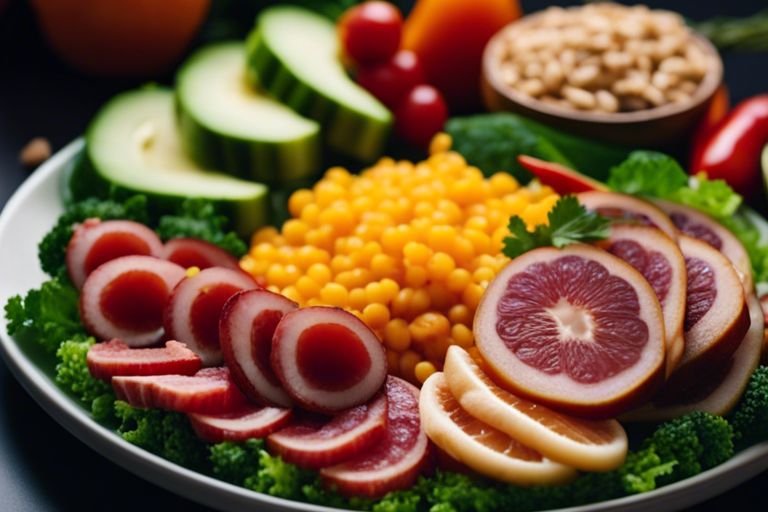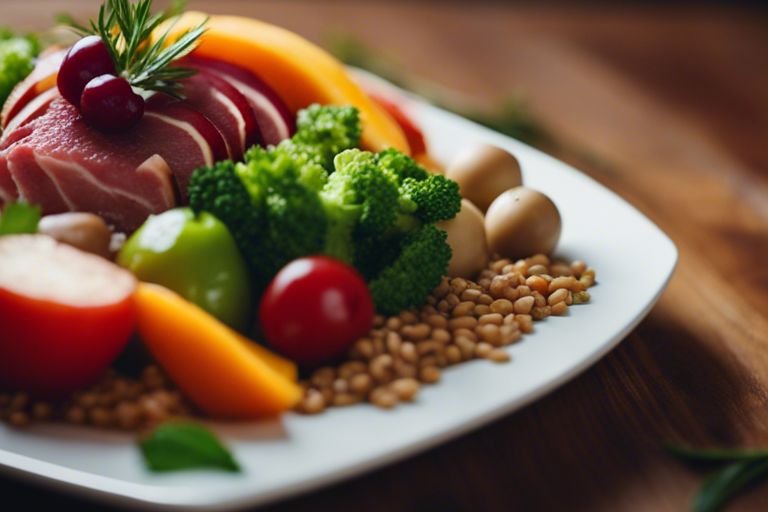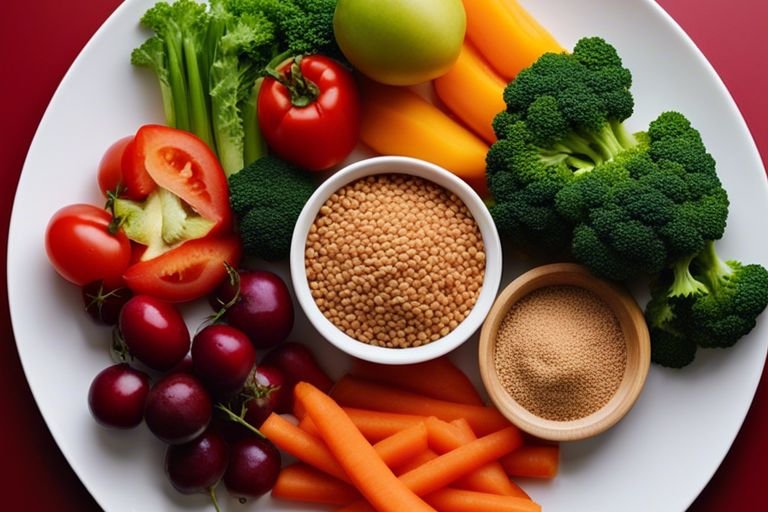As you stand in front of your fridge, contemplating what to cook for dinner, you’re likely aware of the environmental and health implications of your food choices. You may have considered going vegan or vegetarian, but the thought of giving up meat entirely can be daunting. That’s where the reducetarian diet comes in – a flexible and sustainable approach to eating less meat, without sacrificing flavor or nutrition. By adopting this diet, you’ll not only be doing your body a favor, but also contributing to a more environmentally conscious food system.

Key Takeaways:
- Flexibility is key: The Reducetarian Diet is not about completely eliminating meat from your diet, but rather about reducing your meat consumption in a way that works for you. This approach acknowledges that it can be challenging to make drastic changes to your eating habits, and instead encourages gradual, sustainable progress.
- Start small: The book suggests starting with small changes, such as designating one day a week as a “meatless Monday” or replacing one meat-based meal per day with a plant-based option. This approach makes it easier to incorporate new habits into your daily routine and builds momentum towards larger changes.
- Focus on addition, not subtraction: Rather than focusing on what you’re cutting out of your diet, the Reducetarian approach emphasizes adding more plant-based foods and nutrients to your meals. This mindset shift can help make the transition to a more sustainable diet feel more positive and empowering.
The Rationale Behind Reducetarianism
Your decision to adopt a reducetarian diet is rooted in a desire to make a positive impact on your health and the environment. By reducing your meat intake, you’re not only improving your own well-being but also contributing to a more sustainable food system.
The Environmental Impact of Meat Consumption
To put it simply, meat production is a significant contributor to greenhouse gas emissions, deforestation, and water pollution. The livestock industry is responsible for around 14.5% of global emissions, which is more than the entire transport sector. By reducing your meat consumption, you’re helping to mitigate these environmental concerns and promoting a more eco-friendly food system.
The Health Benefits of Reducing Meat Intake
One of the most significant advantages of reducetarianism is the positive impact it can have on your health. By reducing your meat intake, you’re lowering your risk of chronic diseases such as heart disease, type 2 diabetes, and certain types of cancer.
Reducing your meat consumption also allows you to focus on incorporating more plant-based foods into your diet, which are rich in vital nutrients, fiber, and antioxidants. This shift can lead to improved digestion, increased energy levels, and even weight loss. Moreover, reducetarianism encourages mindful eating habits, helping you develop a healthier relationship with food and reducing the likelihood of overconsumption.
What is the Reducetarian Diet?
The Reducetarian Diet is an eating approach that encourages you to reduce your meat consumption, without necessarily eliminating it entirely. This diet is designed to be a flexible and sustainable way to improve your health, reduce your environmental footprint, and promote animal welfare.
Definition and Principles
One of the core principles of the Reducetarian Diet is to reduce your meat intake in a way that feels manageable and enjoyable for you. This means setting personal goals to cut back on meat, whether it’s by one serving a day, one meal a week, or one day a month. The diet is built on the idea that every little bit counts, and that even small changes to your eating habits can have a significant impact on your health and the planet.
How it Differs from Vegetarianism and Veganism
What sets the Reducetarian Diet apart from vegetarianism and veganism is its flexibility and lack of strict rules. You don’t have to give up meat entirely, but rather focus on reducing your consumption in a way that works for you.
From a practical standpoint, this means you can still enjoy your favorite meat-based dishes, but in moderation. You might try meat-free Mondays, or limit your meat intake to weekends only. The Reducetarian Diet is all about finding a balance that you can maintain in the long term, rather than trying to adhere to a strict set of rules. This approach makes it more accessible and sustainable for many people, especially those who are new to plant-based eating or struggling to give up meat entirely.

The Science Behind Meat Reduction
Keep in mind that the reducetarian diet is not just about cutting back on meat for the sake of it; there’s a wealth of scientific research that supports the benefits of reducing your meat intake. From the role of meat in human nutrition to its effects on gut health and chronic diseases, let’s probe the fascinating science behind meat reduction.
The Role of Meat in Human Nutrition
Reassessing the role of meat in your diet can be a game-changer. While meat does provide crucial nutrients like protein, iron, and zinc, it’s not the only source of these nutrients. In fact, many plant-based foods offer similar nutritional benefits without the negative health consequences associated with excessive meat consumption.
The Effects of Meat on Gut Health
Effects of meat on gut health are far-reaching and often underestimated. A diet high in meat can disrupt the delicate balance of your gut microbiome, leading to inflammation, digestive issues, and even mental health problems.
It’s worth noting that the gut microbiome is a complex ecosystem that plays a crucial role in your overall health. When you consume meat, the gut microbiome responds by producing more inflammatory compounds, which can have long-term consequences for your health. By reducing your meat intake, you can promote a healthier gut microbiome and reap the benefits of a stronger immune system and improved digestion.
The Link Between Meat Consumption and Chronic Diseases
Meat consumption has been linked to an increased risk of chronic diseases, including heart disease, type 2 diabetes, and certain types of cancer. This is largely due to the high levels of saturated fat, cholesterol, and advanced glycation end (AGE) products found in meat.
To put this into perspective, a study published in the Journal of the American Osteopathic Association found that a diet rich in plant-based foods and low in meat consumption can reduce the risk of heart disease by up to 42%. By adopting a reducetarian diet, you can significantly lower your risk of chronic diseases and enjoy a healthier, happier life. As Dr. Brian Kateman, co-founder of the Reducetarian Foundation, notes in his book review of The Reducetarian Solution – Book Review, “even modest reductions in meat consumption can have a significant impact on public health.”
Getting Started with Reducetarianism
To commence on the reducetarian diet, you’ll need to take a few initial steps to set yourself up for success.
Assessing Your Current Diet
Your current eating habits are the foundation upon which you’ll build your reducetarian lifestyle. Take a week or two to track your food intake, noting the types and amounts of meat you consume. This will give you a clear understanding of your starting point and help you identify areas for improvement.
Setting Realistic Goals for Meat Reduction
Your reducetarian journey begins with setting achievable goals for reducing your meat consumption. Start by identifying one or two days a week where you can easily cut back on meat, and work from there.
Current research suggests that even small reductions in meat consumption can have significant health benefits. By setting realistic goals, you’ll be more likely to stick to your new habits and make lasting changes to your diet.
Stocking Your Pantry with Reducetarian-Friendly Foods
On your path to reducetarianism, having a well-stocked pantry can make all the difference. Focus on whole, plant-based foods like beans, lentils, and whole grains, as well as nuts and seeds.
A well-stocked pantry will provide you with the tools you need to create delicious, meat-reduced meals. Experiment with new ingredients and recipes to keep your diet interesting and varied.
Reducetarian Meal Planning and Recipes
Despite the growing awareness of the benefits of reducing meat consumption, many people struggle to incorporate plant-based meals into their daily routine. The good news is that meal planning and recipe exploration can be a fun and creative process, and it doesn’t have to break the bank or require hours of cooking time.
Breakfast Ideas for Reducetarians
On busy mornings, it’s easy to fall back on familiar breakfast routines, but reducetarians can start their day with a variety of delicious and nutritious options. Try swapping scrambled eggs for tofu scrambles, or blending together a smoothie bowl with frozen berries, banana, and almond milk. You can also experiment with overnight oats, avocado toast, or whole-grain waffles with fresh fruit and nuts.
Lunch and Dinner Options for Meat Reduction
Like breakfast, lunch and dinner can be easily adapted to reduce meat consumption. Breakfast staples like omelets and pancakes can be easily converted into lunch or dinner options by adding vegetables and whole grains. You can also try plant-based protein sources like beans, lentils, and tofu, paired with roasted vegetables and quinoa or brown rice.
Meal planning is key to successful reducetarianism, and it’s necessary to think about the flavors and textures you enjoy and how you can replicate them with plant-based ingredients. For example, if you love the smokiness of bacon, try using smoked paprika or chipotle peppers to add depth to your dishes. Experiment with different spices and seasonings to find the combinations that work best for you.
Snacking Strategies for a Healthier You
Planning ahead is crucial when it comes to snacking, as it’s easy to reach for convenient but unhealthy options when hunger strikes. Keep a stash of nuts, seeds, and dried fruit on hand, and try making your own trail mix with ingredients like dark chocolate chips and puffed rice. You can also prep a week’s worth of energy balls or hummus and veggie sticks for a quick and satisfying snack.
This is where reducetarianism gets really fun – you get to explore new flavors and textures, and find healthy alternatives to your favorite snacks. Do not forget, the goal is progress, not perfection, so don’t be too hard on yourself if you slip up. Simply get back on track and keep moving forward, and you’ll be enjoying a healthier, more sustainable relationship with food in no time.
Overcoming Challenges and Staying Motivated
Once again, congratulations on taking the first step towards a reducetarian lifestyle! As you initiate on this journey, you’ll inevitably encounter challenges that may test your resolve. But don’t worry, with the right strategies and mindset, you’ll be able to overcome them and stay motivated.
Dealing with Social Pressure and Criticism
Motivated by your newfound commitment to reducetarianism, you may face scrutiny or skepticism from friends and family who don’t understand your choices. Remember that their opinions don’t define your values or goals. Stay confident in your decision, and politely but firmly explain your reasons for adopting a reducetarian lifestyle.
Managing Cravings and Temptations
The temptation to revert to old habits can be strong, especially when faced with familiar comfort foods or social gatherings centered around meat. Be prepared to acknowledge and manage these cravings by having healthy alternatives readily available and reminding yourself of your goals.
Social situations can be particularly challenging, but it’s important to stay focused on your objectives. Try to identify the triggers that lead to cravings and develop strategies to cope with them. For instance, if you know you always crave burgers at family barbecues, prepare a delicious reducetarian alternative to bring along and share with others.
Finding Support and Community
Challenges are inevitable, but they’re much easier to overcome when you’re surrounded by like-minded individuals who share your goals. Seek out online forums, social media groups, or local reducetarian meetups where you can connect with others who understand your journey.
Community is key to maintaining motivation and staying on track. By surrounding yourself with people who support and encourage your reducetarian lifestyle, you’ll feel more accountable and inspired to continue making progress towards a healthier, more sustainable you.11 Ayurvedic drinks that can help boost immunity in monsoon.
Final Words
Following this reducetarian journey, you’ve learned that embracing a more plant-based diet doesn’t have to mean giving up your favorite foods or feeling deprived. By incorporating small changes into your daily eating habits, you can make a significant impact on your health and the planet’s well-being. Keep in mind, every reducetarian choice you make is a step in the right direction. So, go ahead, take control of your plate, and savor the flavors of a healthier, more sustainable you.
FAQ
Q: What is the Reducetarian Diet, and how does it differ from vegetarianism or veganism?
A: The Reducetarian Diet is a flexible and sustainable approach to eating that aims to reduce meat consumption without completely eliminating it. Unlike vegetarianism or veganism, which require complete abstinence from meat, the Reducetarian Diet encourages individuals to reduce their meat intake gradually, making it a more accessible and maintainable option for many people. This approach recognizes that even small changes to one’s diet can have a significant impact on health and the environment.
Q: What are the health benefits of adopting a Reducetarian Diet?
A: The Reducetarian Diet has been shown to have numerous health benefits, including reducing the risk of heart disease, type 2 diabetes, and certain types of cancer. By limiting meat consumption, individuals can lower their intake of saturated fat, cholesterol, and sodium, while increasing their consumption of fiber, vitamins, and minerals. Additionally, a Reducetarian Diet may lead to weight loss, improved gut health, and a reduced risk of chronic diseases.
Q: How can I incorporate the Reducetarian Diet into my daily life, especially if I’m not a skilled cook or have a busy schedule?
A: Incorporating the Reducetarian Diet into your daily life can be easy and convenient, even for those with limited cooking skills or busy schedules. Start by making small changes, such as designating one or two meat-free days per week, trying plant-based protein sources like beans or tofu, or substituting meat with vegetarian options in familiar dishes. You can also explore meal prep, cookbooks, and online resources for inspiration and guidance. Additionally, many restaurants and meal delivery services now offer vegetarian and vegan options, making it easier to follow a Reducetarian Diet when eating out or ordering in.
